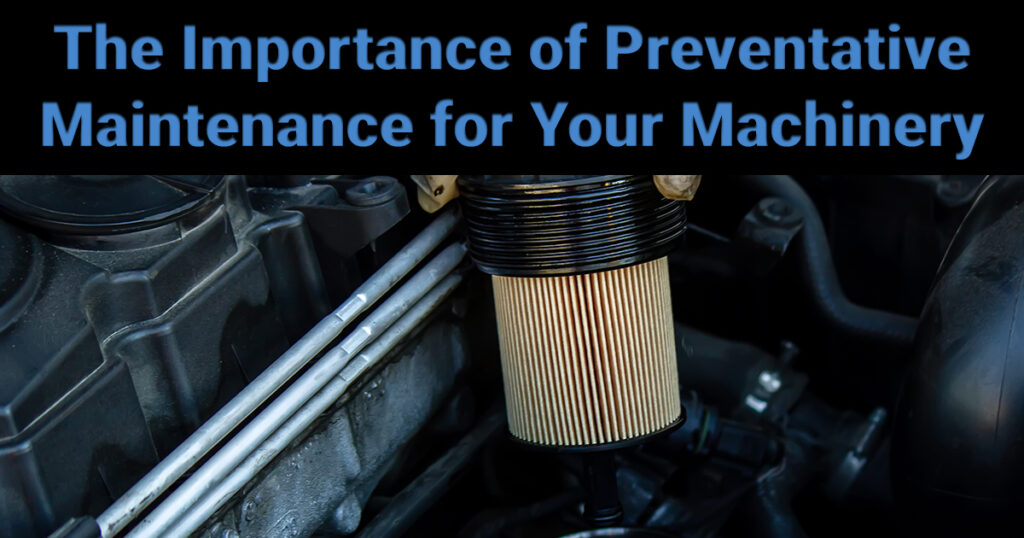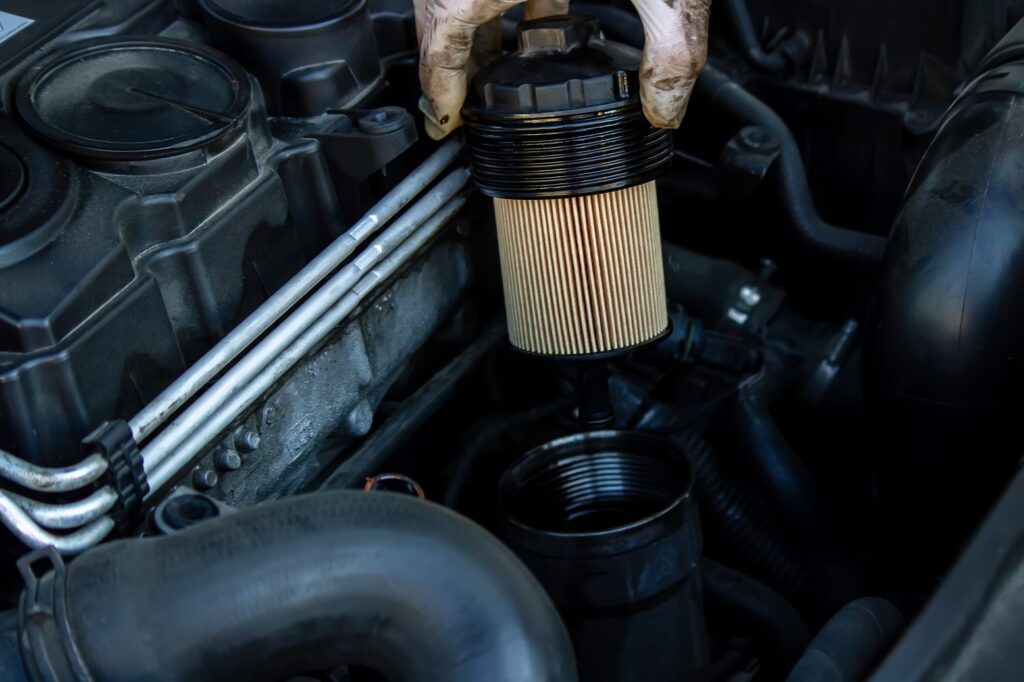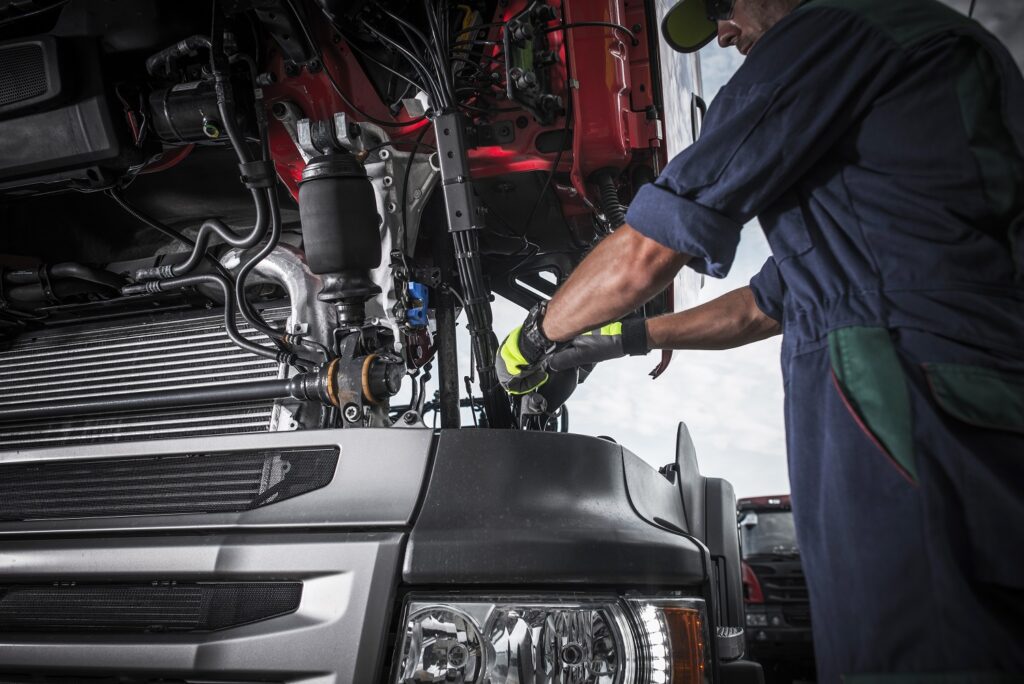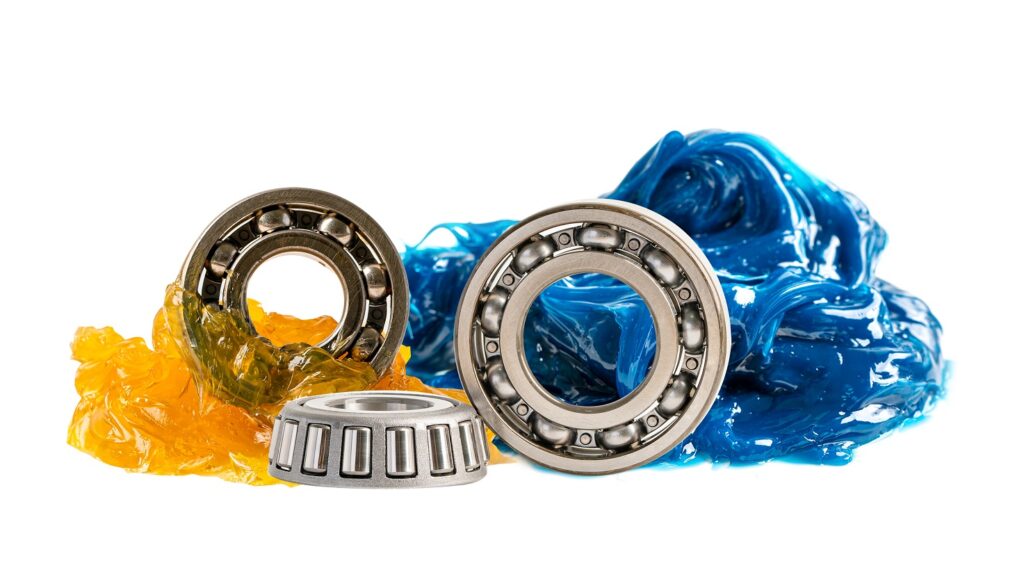


Preventative maintenance is critical to maintaining machinery and vehicles, ensuring optimal performance, longevity, and efficiency. This approach involves taking proactive measures to prevent potential failures and breakdowns, helping to reduce costly repairs and downtime.
The most common form of preventative maintenance is regularly changing filters and oil in your machinery. In this article, we will explore the importance of these tasks, the benefits they provide, and some tips on executing them effectively.

Filters and oil play crucial roles in the proper functioning of machinery. Filters remove contaminants, such as dirt and debris, from the air, fuel, and oil. In contrast, oil provides lubrication, reducing friction between moving parts and preventing wear and tear.
Over time, filters can become clogged, and oil can degrade, leading to decreased performance and, ultimately, machinery failure. Changing filters and oil regularly is essential for the following four reasons.
Prolonging Your Equipment Life: Regularly changing filters and oil helps to ensure that your machinery operates at peak efficiency, reducing wear on components and extending the overall life of the equipment. In Fact, following the manufacturer servicing interval instructions can give your machine or vehicle a much longer life.
Increased Efficiency: Clean filters and fresh oil help promote optimal machinery performance, leading to increased efficiency and productivity. Some studies on air filters showed that regularly changing them boosted fuel efficiency and overall running costs when compared to timed changed outs.
Reduced Downtime and Repairs: By performing preventative maintenance tasks, such as changing filters and oil regularly, you can reduce the likelihood of equipment breakdowns and the need for costly repairs. One of the highest costs from a breakdown isn’t the repair but the cost of wages for employees that can’t work!
Improved Safety: Properly maintained machinery is less likely to experience unexpected failures or malfunctions, which can pose a risk to operators and the surrounding environment.

The frequency with which you should change filters and oil in your machinery will depend on the type of equipment and the conditions in which it operates.
Generally, the manufacturer of the equipment will provide guidelines for maintenance intervals. However, these guidelines should be considered a starting point, as individual operating conditions may require more frequent maintenance.
Some factors that may influence the frequency of maintenance include;
Operating environment
Machines operating in extremely dusty or dirty environments may require frequent filter changes to maintain optimal performance. Unfortunately, air filters are especially susceptible in these environments and can bring a machine to its knees. Therefore, we highly recommend the installation of a high-efficiency air cleaner that can increase the life of your air filters.
Load and usage
Equipment frequently operated at high loads or for extended periods may require more frequent oil changes to ensure adequate lubrication. Some equipment, like lighting towers, generators and welders, may need a service every week or two. High-use Hydraulic systems may also require extra filtration in order to last longer.
Age of the equipment
As machinery ages, its components may wear and require more frequent maintenance to keep it running smoothly. In some diesel engines, adding an additive to thicken the oil or even increasing the oil weight to counteract the engine wear is typical.
Consider the following tips to ensure the most effective preventative maintenance.
Always refer to the manufacturer’s guidelines for recommended maintenance intervals and the type of filters and oil to use. But remember, over-servicing can increase the life of your engine further. For example, it is common for automotive applications to have their oil and oil filters changed every 10,000km, but changing this to every 5,000km has shown long-life engine benefits.
Develop a maintenance schedule based on manufacturer recommendations and your specific operating conditions. This will help to ensure that maintenance tasks are performed at the appropriate intervals, and the wear and tear of your engine will be kept to a minimum.
Investing in high-quality filters and oil will ensure optimal performance and protection for your machinery. However, good-quality lubricants and filters protect your engine from failure and excess wear. So always ensure you buy quality brands to use on your fleet.
Regularly inspect and monitor your equipment for signs of wear or potential issues. Doing this can help you identify and address problems early before they lead to more significant issues or failures. A great way to achieve this is by using oil sample testing bottles, which analyse your oil for metal particles indicative of engine wear.

Have you got any more questions?
Reach out to our expert sales team, and remember to follow us on Facebook or sign up for our newsletter.